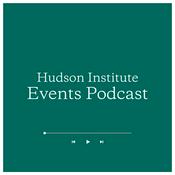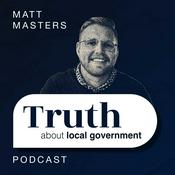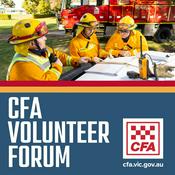The Principles of War - Lessons from Military History on Strategy, Tactics, Doctrine and Leadership.
James Eling

Latest episode
198 episodes
Puller, Munro, and Monssen - the daring resuce of 1/7 Marines - 2nd Battle of the Matanikau Part II
01/02/2026 | 28 mins.2nd Matanikau - Guadalcanal and Pullers rescue of the 1/7th Marines.
The 2nd Battle of the Matanikau Part II - This is the eighth episode of our Guadalcanal series with historian and author Dave Holland.
This episode discusses:
What was the plan for 27 September, and why was it inherently risky?
How did a breakdown in command-and-control affect the Marines' river-crossing plan at the Matanikau River?
How did the Japanese react so fast, and what trap did they set behind Chesty Puller?
Why did the Raiders get stopped short of the One Log Bridge—and what happened to Ken Bailey?
What role did comms failure play once the fight started to go wrong?
How did the amphibious "end run" force end up trapped west of Point Cruz?
What made the situation worse once they were cut off—equipment and radios?
How did the "HELP" undershirt signal actually work, and what did the pilot do?
How was the rescue executed—who coordinated it, and what enabled withdrawal under fire?
What were the lessons learnt and why are they important today?
Who was Samuel B. Griffith?
*]:pointer-events-auto [content-visibility:auto] supports-[content-visibility:auto]:[contain-intrinsic-size:auto_100lvh] scroll-mt-[calc(var(--header-height)+min(200px,max(70px,20svh)))]" dir="auto" tabindex="-1" data-turn-id= "59f613f3-b8a9-420c-bd76-32fbc72206af" data-testid= "conversation-turn-4" data-scroll-anchor="true" data-turn= "assistant"> Dave Holland is an ex-Marine and was posted to Guadalcanal with the Australian Federal Police. He regularly leads battlefield study tours through the area. He is a world-leading expert on the battles of Guadalcanal and author of Guadalcanal's Longest Fight - The Pivotal Battles of the Matanikau Front.
Check out the show notes for this episode.
https://www.patreon.com/cw/principlesofwar - if you've learnt something from this episode and you can afford it, please support the podcast at Patreon.
Great Professional Military Education for your Unit. This episode covers C2, Littoral Manoeuvre and naval support to land operations.- The 2nd Battle of the Matanikau - This is the seventh episode of our Guadalcanal series with historian and author Dave Holland.
This episodes discusses:
*]:pointer-events-auto [content-visibility:auto] supports-[content-visibility:auto]:[contain-intrinsic-size:auto_100lvh] scroll-mt-[calc(var(--header-height)+min(200px,max(70px,20svh)))]" dir="auto" tabindex="-1" data-turn-id= "59f613f3-b8a9-420c-bd76-32fbc72206af" data-testid= "conversation-turn-4" data-scroll-anchor="true" data-turn= "assistant"> How did the arrival of the 7th Marines transform Vandegrift's Guadalcanal strategy from survival to aggressive "active defence"?
What was Japan's Operation Ka, and how was it meant to crush the Marines and recapture Henderson Field in one decisive blow?
How did the sinking of USS Wasp and the escorting convoy turn Guadalcanal logistics into a day-to-day survival crisis for the 1st Marine Division?
In what ways did Vandegrift and Admiral Kelly Turner pioneer the modern CLF–CATF relationship during the Guadalcanal campaign?
Why did the Marines abandon textbook 'defence in depth' and trial a all round defensive cordon with little depth around Henderson Field—and why did it work?
How badly did Marine intelligence underestimate Japanese strength around the Matanikau, and how did it effect operational planning?
Who was Lt Col "Chesty" Puller in 1942, and why was he Vandegrift's preferred commander for the first major offensive patrol west of Henderson Field?
What really happened on Chesty Puller's reconnaissance-in-force over Mount Austin, and how close did his battalion come to disaster?
Why does Dave Holland call the failed Matanikau crossing "Alligator Creek in reverse," and what brutal small-unit lessons come out of that sandbar assault?
Why did more sailors than soldiers and Marines die in the Guadalcanal campaign, and what does that reveal about sea control and amphibious logistics?
Dave is an ex-Marine and was posted to Guadalcananal with the Australian Federal Police. He regularly leads battlefield study tours through the area. He is a world-leading expert on the battles of Guadalcanal and author of Guadalcanal's Longest Fight - The Pivotal Battles of the Matanikau Front.
Check out the show notes for this episode.
https://www.patreon.com/cw/principlesofwar - if you've learnt something from this episode and you can afford it, please support the podcast at Patreon. - This is the sixth episode of our Guadalcanal series with historian and author Dave Holland.
This episodes discusses:
*]:pointer-events-auto [content-visibility:auto] supports-[content-visibility:auto]:[contain-intrinsic-size:auto_100lvh] scroll-mt-[calc(var(--header-height)+min(200px,max(70px,20svh)))]" dir="auto" tabindex="-1" data-turn-id= "59f613f3-b8a9-420c-bd76-32fbc72206af" data-testid= "conversation-turn-4" data-scroll-anchor="true" data-turn= "assistant"> How close did Japanese forces come to capturing Henderson Field in September 1942?
Why was Edson's Ridge the key terrain for defending Guadalcanal's airfield?
How did pre-registered artillery fire shape the outcome on Edson's Ridge?
What command decisions did Edson make when his defensive plan began to unravel?
How did the Marines adapt to Japanese infiltration tactics during the night attacks?
In what ways did Edson's Ridge save the Cactus Air Force?
Why did Kawaguchi underestimate the Marines defending Henderson Field?
What leadership failures forced the September purge of underperforming Marine officers?
How did logistics and fatigue shape the Marines' combat effectiveness on the ridge?
What lessons from Edson's Ridge matter for modern all-arms defensive planning?
Dave is an ex-Marine and was posted to Guadalcananal with the Australian Federal Police. He regularly leads battlefield study tours through the area. He is a world-leading expert on the battles of Guadalcanal and author of Guadalcanal's Longest Fight - The Pivotal Battles of the Matanikau Front.
Check out the show notes for this episode.
https://www.patreon.com/cw/principlesofwar - if you've learnt something from this episode and you can afford it, please support the podcast at Patreon. - This is the fifth episode of our Guadalcanal series with historian and author Dave Holland.
This episodes discusses:
*]:pointer-events-auto [content-visibility:auto] supports-[content-visibility:auto]:[contain-intrinsic-size:auto_100lvh] scroll-mt-[calc(var(--header-height)+min(200px,max(70px,20svh)))]" dir="auto" tabindex="-1" data-turn-id= "59f613f3-b8a9-420c-bd76-32fbc72206af" data-testid= "conversation-turn-4" data-scroll-anchor="true" data-turn= "assistant"> Why was Henderson Field the single piece of decisive terrain on Guadalcanal?
How did Edson know the main Japanese attack would come over the ridge, not the beach?
What went wrong in Kawaguchi's three-pronged night attack on the Marine perimeter?
How did fragile Guadalcanal logistics shape the tempo in September 1942?
What made Edson's Ridge a natural avenue of approach to the airfield?
How did the Tanambogo/Gavutu raider actions tip the Marines to Japanese intentions?
What do Edson vs. Kawaguchi show about combat leadership in jungle/littoral fights?
How did malaria, dysentery, and hunger blunt Marine combat power before the battle?
Why did Vandegrift accept a thin, incomplete perimeter around Henderson Field?
How did daily Japanese air raids limit Marine prep of the ridge before 12–14 Sept 1942?
Dave is an ex-Marine and was posted to Guadalcananal with the Australian Federal Police. He regularly leads battlefield study tours through the area. He is a world-leading expert on the battles of Guadalcanal and author of Guadalcanal's Longest Fight - The Pivotal Battles of the Matanikau Front.
Check out the show notes for this episode. 138 - Guadalcanal - Battle of the Tenaru: How the Marines stopped Ichiki's night assault on the Alligator Creek
09/10/2025 | 58 mins.This is the fourth episode of our Guadalcanal series with historian and author Dave Holland.
This episodes discusses:
How did the Marines employ the 37 mm gun firing canister at Alligator Creek?
Why did Colonel Ichiki attack without heavy weapons— trading firepower for speed and what was the cost?
What are the myths about scout Jacob Vouza?
How did barbed wire obstacles and coconut-log bunkers employed for to create an engagement zone?
How did pre-registered fires shape the Battle of Tenaru?
What early warnings did coastwatchers and patrols provide before the assault?
How did Marine tanks at dawn finish the fight across the sandbar?
What role did the Cactus Air Force play in the Battle of Tenaru?
Was Ichiki killed in action or by seppuku—what's the best evidence?
What operational lessons from Tenaru guided both sides at Henderson Field?
Dave is an ex-Marine and was posted to Guadalcananal with the Australian Federal Police. He regularly leads battlefield study tours through the area. He is a world-leading expert on the battles of Guadalcanal and author of Guadalcanal's Longest Fight - The Pivotal Battles of the Matanikau Front.
Check out the show notes for this episode.
More Government podcasts
Trending Government podcasts
About The Principles of War - Lessons from Military History on Strategy, Tactics, Doctrine and Leadership.
Professional Military Education in 30 minute sessions. Historic Battles study through current doctrine to gain lessons learned. Tactics, Strategy, Combined Arms, Military Leadership in a format for Unit PME programs.
We study the great battles to draw the lessons on strategy, tactics and leadership. Get your lessons learned here rather than in AAR format.
Podcast websiteListen to The Principles of War - Lessons from Military History on Strategy, Tactics, Doctrine and Leadership., The Interview and many other podcasts from around the world with the radio.net app

Get the free radio.net app
- Stations and podcasts to bookmark
- Stream via Wi-Fi or Bluetooth
- Supports Carplay & Android Auto
- Many other app features
Get the free radio.net app
- Stations and podcasts to bookmark
- Stream via Wi-Fi or Bluetooth
- Supports Carplay & Android Auto
- Many other app features


The Principles of War - Lessons from Military History on Strategy, Tactics, Doctrine and Leadership.
Scan code,
download the app,
start listening.
download the app,
start listening.


































